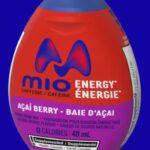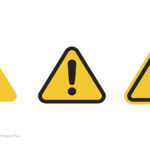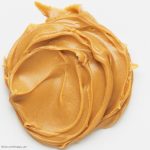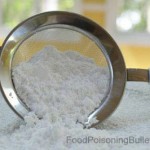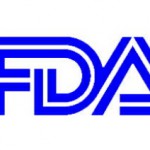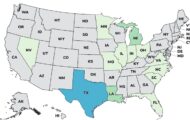MiO Energy Energy Drink Mixes are being recalled in Canada because they may have unsafe levels of caffeine. High levels of caffeine can be dangerous for children and pregnant women, anyone who is breastfeeding, and those sensitive to caffeine. Exercising while consuming caffeine can cause health problems. There has been one reported reaction that may have been associated with the consumption of these products. Some of the side effects of consuming excess caffeine may include insomnia, irritability, headaches, and nervousness. The recalling firm is Kraft Heinz Canada. The recalled products were sold nationally at the retail level. These items are all MiO Energy brand. They include Energy Drink Mix Tropical Passionfruit in 48 milliliter containers. The UPC number is 0 683921 5. Also … [Read more...]
Health Canada Warns Consumers About Caffeinated Energy Drinks
Health Canada is warning consumers about the possible health drinks of consuming too many caffeinated energy drinks. These drinks are not recommended for anyone who is under the age of 14, who is pregnant or breast-feeding, or anyone who is sensitive to caffeine. These beverages or mixes contain added caffeine, usually along with other ingredients such as minerals, vitamins, herbal ingredients, guayana, Yerba mate, and taurine. In Canada, these beverages can contain up to 180 mg of caffeine per serving. There are cautionary statements on these product labels in these countries. Anyone over the age of 18 should not consume more than 400 mg of caffeine per day. Too much caffeine can have detrimental effects on your health, including insomnia, irritability, headaches, and … [Read more...]
Mateína Yerba Mate Sparkling Energy Infusions Recalled
Mateína Yerba Mate Sparkling Energy Infusions are being recalled in Canada because of caffeine labeling requirement issues. The problem is non-compliance about supplemented food cautionary labeling requirements to help consumers avoid excessive consumption of caffeine. There have been no reported illnesses associated with the consumption of these products received by the company to date. The recalling firm is Mateína Inc. The recalled products were sold in Quebec at the retail level. They include Mateína Organic Raspberry Yuzu Yerba Mate Sparkling Energy Infusion that is packaged in 355 milliliter cans. The UPC number that is printed on the product label is 6 28504 15739 8. The best by date and code pairs for this item are: Best Before 2025-02-09 and FY-100, Best Before 2025-02-17 … [Read more...]
Caffeinated Drinks Recalled in Canada For Non-Compliance
Caffeinated drinks are being recalled in Canada for non-compliance related to caffeine content and labeling requirements. High caffeine levels may have adverse health effects for children, people sensitive to caffeine, pregnant women, and people who are breastfeeding, including insomnia, headaches, and nervousness. There have been no adverse reactions reported to the companies to date in association with the consumption of these products. The recalling firms are T & E Imports, GPAE Trading Corporation, and Les produits Raredrank Inc. The recalled caffeinated drinks were sold nationally online. All flavors which contain caffeine and do not have bilingual (English and French) labeling are included in this recall. The recalled products include Bang Potent Brain and Body Fuel, C4 … [Read more...]
How Much Caffeine is Too Much? The FDA Has Answers
The FDA has answers to the question: How much caffeine is too much? While caffeine can be part of a healthy diet, too much can be dangerous to your health. The amount that is safe to consume depends on body weight, individual sensitivity, and the medications you take. In general, a 12 ounce soft drink contains 30 to 40 milligrams of caffeine. An 8 ounce serving or green or black tea has 30 to 50 milligrams. An 8 ounce cup of coffee contains 80 to 100 milligrams, and an 8 ounce energy drink contains 40 to 250 milligrams. For years, the FDA has warned consumers to avoid powdered caffeine since 2014. An 18-year-old teenager in Ohio died after using this product. One teaspoon of the powdered product is the equivalent to 25 cups of coffee. And last year, the government warned … [Read more...]
FDA Warning Consumers About Highly Concentrated Caffeine Products
The FDA is warning consumers about highly concentrated caffeine products. The agency recently sent warning letters to two online dietary supplement markets for illegally selling this product. The FDA considers these products to be a threat to public health. The agency has issued guidance to make it clear that dietary supplements containing pure or highly concentrated caffeine in powder or liquid form are unlawful when sold in bulk quantities directly to consumers. These products carry a high risk of being mistakenly used at dangerous doses. They have been linked to at least two deaths. One teaspoon of highly concentrated caffeine is equivalent to the amount of caffeine in 28 cups of coffee. A half cup of liquid concentrated caffeine product has about the same amount of caffeine … [Read more...]
Caffeine in Peanut Butter? FDA Wants More Info
Did you know that one corporation is adding caffeine to peanut butter? STEEM Peanut Butter, Inc. has been doing this, and the FDA is not sure they like it. There is 150 mg of caffeine in each serving of that peanut butter. On December 15, 2015, the FDA sent STEEM a letter asking for information about their use of caffeine in this product. The company has not submitted any information about the safety of caffeine in this product to the FDA. The FDA "remains concerned about the increasing number of products on the market containing added caffeine and the possibility for harmful effects when multiple caffeinated products are eaten simultaneously, especially in products that are attractive to children," the letter states. The U.S. government has not developed guidelines for children's … [Read more...]
CSPI: FDA Should Ban Retail Sale of Bulk Caffeine
The Center for Science in the Public Interest is saying that the FDA should ban the retail sale of bulk caffeine as a dietary supplement. Parents of two young men who died after ingesting this product met with FDA officials and senators to press their cause. CSPI is formally petitioning the FDA over this issue. Katie and Dennis Stiner of Ohio lost their 18 year old son Logan in May of this year. James and Julie Sweatt of Alabama lost their 24 year old son Wade in July 2014 after he ingested caffeine powder for the first time. One teaspoon of powdered caffeine is equivalent to 25 cups of coffee. It is very difficult to determine the difference between a safe dose and a deadly dose when caffeine is used in this form. Serving sizes are between 1/32 and 1/16 of a teaspoon - amounts that … [Read more...]
FDA Commissioner’s Take on Caffeine in Food and Supplements
How much caffeine should be allowed in food, beverages and supplements? In August 2013, the Institute of Medicine (IOM), an independent nonprofit organization, held a public workshop on that topic at the request of the U.S. Food and Drug Administration's (FDA). Today the IOM issued a 164-page summary about the workshop. The report does not make recommendations, but describes the risks associated with caffeine consumption and explores safe levels of consumption. The workshop was prompted by the sudden boom in caffeine-added products including gum, candy, snacks, energy drinks, supplements and bottled water. A safe level of caffeine has never been determined for those products. The only time the FDA has approved the use of added caffeine was for cola. That was in the 1950s. "In the … [Read more...]
Do You Consume Too Much Caffeine?
A study published in Food and Chemical Toxicology looked at caffeine consumption in the United States. Most of the caffeine we consume every day comes from beverages; from carbonated soft drinks, tea, energy drinks and shots, coffee, and some fruit flavored beverages. The introduction of beverages such as energy drinks and energy shots changed the landscape of caffeinated beverages. If you are a healthy adult, moderate caffeine consumption (up to 400 mg/day) isn't bad for you. It is associated with weight loss, improved glucose tolerance, reduced risk of Parkinson's and cancer, as well as improvements in concentration and athletic performance. But for children, too much caffeine can be bad. And higher levels can cause anxiety, headaches, and restlessness. In addition, when caffeine … [Read more...]
